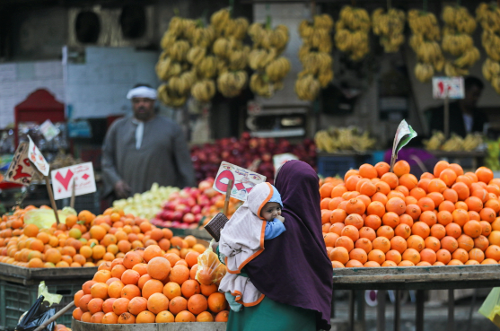Egypt’s Inflation Unexpectedly Quickens After Fuel Subsidy Cuts

TLDR
- Egypt's inflation rate rose to 26.2% in August, ending five months of deceleration.
- Increase follows fuel subsidy cuts, impacting expectations of an interest rate cut.
- Food and beverage prices saw a 29% annual increase, slightly lower than the previous month.
Egypt’s inflation rate rose to 26.2% in August, up from 25.7% in July, marking an end to five months of deceleration, according to the state statistics agency CAPMAS. The increase follows fuel subsidy cuts, disrupting expectations of an interest rate cut for the first time since 2020.
The North African nation's inflation climbed 2.1% monthly in August, the highest rate since February, compared to a 0.4% rise in July. Food and beverage prices, a key inflation component, increased 29% annually, slightly down from 29.7% in July.
Egypt’s inflation had been slowing despite a nearly 40% currency devaluation in March, which helped secure a $57 billion bailout led by the IMF and UAE. However, recent fuel and electricity price hikes have temporarily reversed the trend.
Key Takeaways
Egypt’s inflationary pressures have resurfaced after recent fuel subsidy cuts, ending five months of declining inflation and raising concerns about the near-term inflation outlook, particularly as transportation and other costs rise in response. While inflation was initially curbed by earlier currency devaluations and a global bailout, the recent cuts to fuel and bread subsidies have complicated the country’s disinflationary efforts. Economists expect the Central Bank of Egypt to hold interest rates steady at 27.25%, delaying any potential rate cuts until inflation slows, likely in the first quarter of 2025.

Next Frontier
Stay up to date on major news and events in African markets. Delivered weekly.
Pulse54
UDeep-dives into what’s old and new in Africa’s investment landscape. Delivered twice monthly.
Events
Sign up to stay informed about our regular webinars, product launches, and exhibitions.




